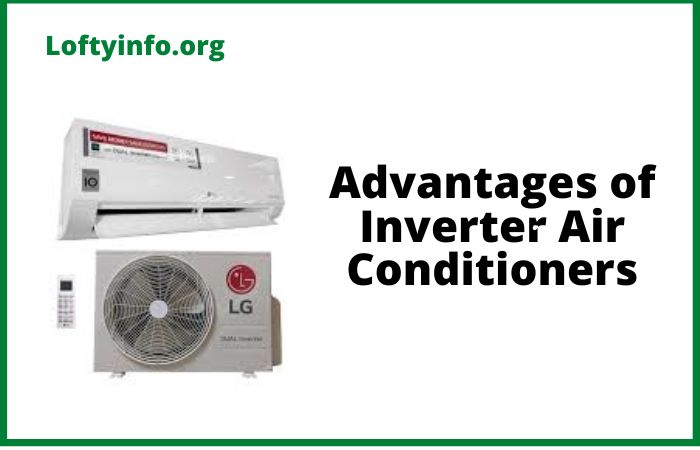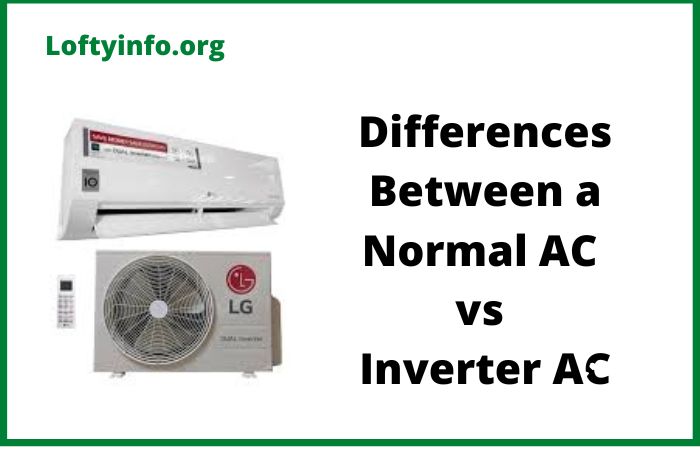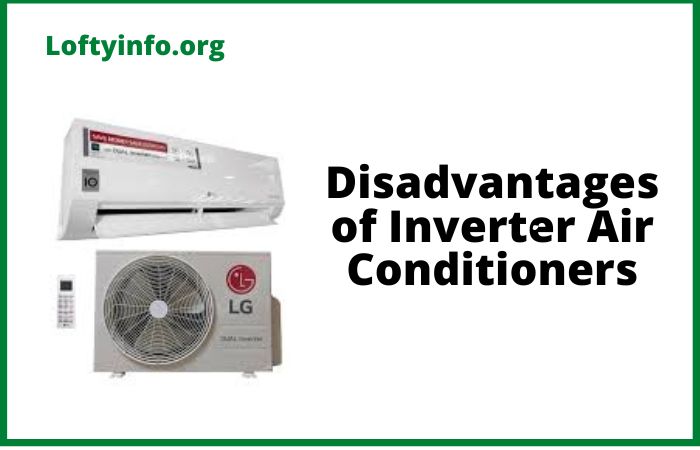Benefits/Advantages of Inverter Air Conditioners
Air conditioning technology has evolved significantly over the past few decades with inverter air conditioners emerging as a superior alternative to traditional fixed-speed units.
These advanced cooling systems utilize variable-speed compressor technology to deliver enhanced performance, efficiency and comfort.
Understanding the numerous advantages of inverter AC units can help consumers make informed decisions when selecting cooling solutions for their homes or offices.
Benefits of Inverter Air Conditioners
1. Superior Energy Efficiency and Reduced Electricity Bills
The most compelling advantage of inverter air conditioners lies in their exceptional energy efficiency.
Unlike conventional AC units that operate on a simple on-off mechanism, inverter technology employs a variable speed compressor that adjusts its operating capacity based on the cooling demand of the room.
Traditional air conditioners consume maximum power when starting up and maintain high energy consumption throughout their operation cycle.
In contrast, inverter ACs modulate their power consumption by continuously adjusting the compressor speed.
When the desired temperature is nearly achieved, the system reduces its speed rather than shutting off completely, maintaining optimal temperature with minimal energy usage.
This intelligent operation typically results in 30-50% lower electricity consumption compared to non-inverter units.
The energy savings become more pronounced with extended usage periods, making inverter ACs particularly beneficial for regions with hot climates where air conditioning runs for extended hours.
The reduced power consumption directly translates to lower monthly electricity bills, often offsetting the higher initial purchase cost within 2-3 years of regular use.
2. Precise Temperature Control and Enhanced Comfort
Inverter air conditioners excel in maintaining consistent room temperatures with remarkable precision.
The variable-speed technology allows these units to make minute adjustments to cooling output, typically maintaining temperature variations within 0.5°C of the set point.
Traditional AC units create temperature fluctuations as they cycle on and off, leading to periods of overcooling followed by gradual warming until the next cooling cycle begins.
This constant temperature variation can cause discomfort and is particularly noticeable during sleep or when working in air-conditioned spaces for extended periods.
The continuous operation of inverter ACs at varying speeds ensures steady-state conditions, eliminating the uncomfortable hot and cold cycles.
This precise temperature control creates a more pleasant indoor environment and reduces the likelihood of temperature-related discomfort, making inverter units ideal for bedrooms, offices and other spaces where consistent comfort is paramount.
3. Faster Cooling Performance
When it comes to achieving desired temperatures quickly, inverter air conditioners demonstrate superior performance compared to their conventional counterparts.
Upon startup, inverter ACs can operate their compressors at speeds significantly higher than the rated capacity, allowing them to reach the set temperature much faster.
This rapid cooling capability is particularly advantageous during extremely hot weather conditions or when cooling large spaces.
While a traditional AC operates at fixed capacity regardless of the temperature difference between the current room temperature and the desired setting, an inverter unit can boost its output when maximum cooling is needed and then gradually reduce its speed as the target temperature approaches.
The faster cooling performance not only enhances user comfort but also contributes to overall energy efficiency.
By reaching the desired temperature quickly and then maintaining it with minimal energy consumption, inverter ACs optimize their operational efficiency throughout the cooling cycle.
4. Quieter Operation
Noise reduction represents another significant advantage of inverter air conditioning technology.
The variable-speed operation of inverter compressors generates considerably less noise compared to the constant start-stop cycling of traditional units.
Conventional air conditioners produce noticeable noise spikes when the compressor starts up, often disturbing sleep or quiet activities.
The sudden engagement and disengagement of the compressor motor creates vibrations and operational sounds that can become quite intrusive, especially in residential settings.
Inverter ACs operate more smoothly due to their gradual speed variations rather than abrupt on-off cycles.
The compressor runs continuously at varying speeds, eliminating the jarring startup noises and maintaining consistently lower decibel levels.
This quiet operation makes inverter units particularly suitable for bedrooms, study rooms, libraries, and other noise-sensitive environments where acoustic comfort is essential.
5. Extended Equipment Lifespan and Reliability
The operational characteristics of inverter air conditioners contribute significantly to their longevity and reliability.
The elimination of frequent start-stop cycles reduces mechanical stress on the compressor and other system components, leading to less wear and tear over time.
Traditional AC compressors experience significant stress during each startup cycle, as they must overcome static pressure and achieve full operational speed instantaneously.
This repeated stress accelerates component degradation and increases the likelihood of mechanical failures.
The high inrush current required during startup also stresses electrical components and connections.
Inverter technology’s gradual speed adjustments and continuous operation eliminate these stress factors.
The compressor operates more smoothly with less mechanical strain, while electrical components experience more stable current flows.
This gentler operation typically extends the equipment lifespan by several years compared to conventional units, reducing replacement costs and maintenance frequency.
Additionally, many inverter AC manufacturers offer extended warranties reflecting their confidence in the technology’s reliability, providing consumers with greater peace of mind and protection for their investment.
6. Environmental Benefits and Reduced Carbon Footprint
The environmental advantages of inverter air conditioners extend beyond their energy efficiency benefits.
Lower electricity consumption directly translates to reduced carbon emissions, particularly in regions where electrical power generation relies heavily on fossil fuels.
The 30-50% reduction in energy consumption achieved by inverter ACs represents a substantial decrease in greenhouse gas emissions over the unit’s operational lifetime.
When multiplied across millions of residential and commercial installations, this technology contributes meaningfully to global carbon reduction efforts.
Many inverter air conditioners utilize more environmentally friendly refrigerants with lower Global Warming Potential (GWP) and Ozone Depletion Potential (ODP).
The improved efficiency also means less refrigerant is needed to achieve the same cooling effect, further reducing environmental impact.
The extended lifespan of inverter units also contributes to environmental sustainability by reducing manufacturing waste and the frequency of equipment replacement.
Fewer replacements mean reduced material consumption and less electronic waste generation.
7. Improved Power Grid Stability
Inverter air conditioners contribute to electrical grid stability through their reduced power consumption and elimination of high startup currents.
Traditional AC units create significant power spikes when starting up, which can strain local electrical infrastructure, particularly during peak demand periods.
The gradual startup and variable operation of inverter ACs create more predictable and manageable electrical loads.
This characteristic is particularly beneficial in areas with limited electrical infrastructure or during peak summer months when multiple air conditioning units operate simultaneously.
Some advanced inverter units also feature power management capabilities that can automatically adjust operation based on available electrical supply, helping prevent overloads and contributing to grid stability during high-demand periods.
Conclusion
Inverter air conditioners represent a significant advancement in cooling technology, offering numerous advantages that justify their growing popularity among consumers and businesses.
The combination of superior energy efficiency, precise temperature control, faster cooling, quieter operation, extended lifespan, environmental benefits and grid-friendly characteristics makes inverter ACs an excellent long-term investment.
While the initial purchase price of inverter units may be higher than conventional air conditioners, the substantial energy savings, reduced maintenance costs and extended equipment life typically provide favorable returns on investment.
As energy costs continue to rise and environmental consciousness grows, the advantages of inverter air conditioning technology become increasingly compelling for both economic and ecological reasons.
For consumers seeking optimal comfort, efficiency, and environmental responsibility in their cooling solutions, inverter air conditioners offer a proven technology that delivers superior performance across multiple criteria.
The continued advancement of inverter technology promises even greater benefits in future generations of air conditioning equipment.
Reasons to get a bigger home battery for solar setup
Why inverters connected to grid damage easily and frequently





